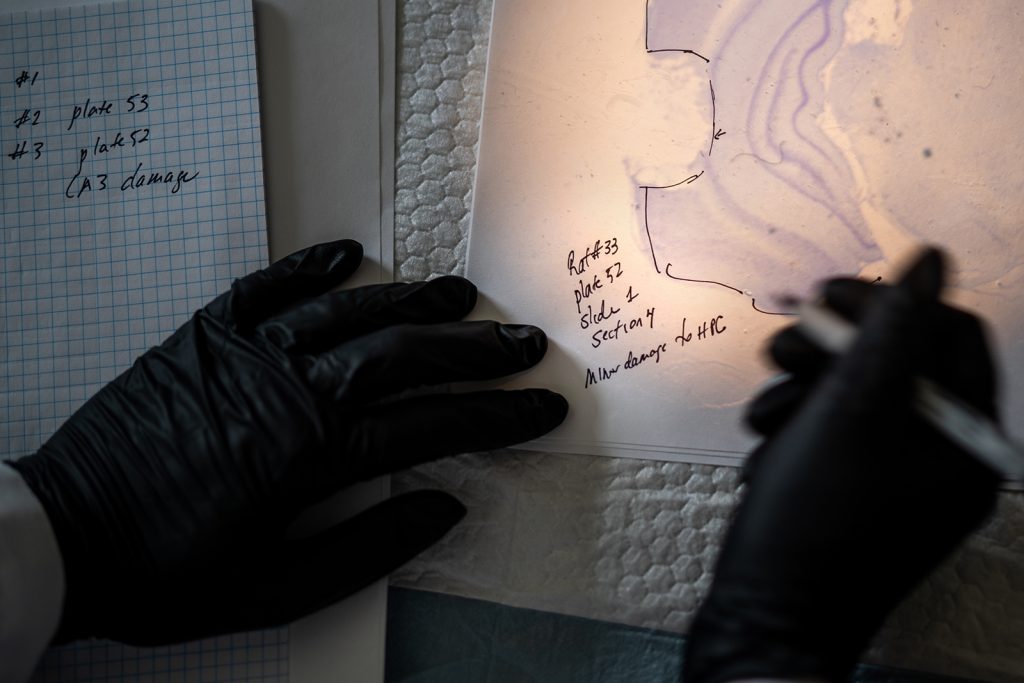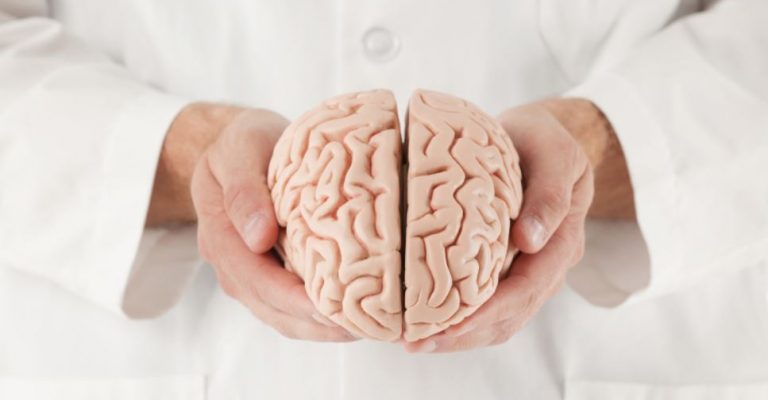Damage to that area of the brain, particularly a Hippocampus damage, is known to result in memory and learning-related issues. This is to say that memory loss or the inability to learn new things could be upcoming consequences for an individual undergoing difficult conditions with injury to the brain in this particular area.
The good news, then, is that the Hippocampus is one of those very special parts of our brain that arguably has a unique capacity for self-repair. It does so by literally growing new brain cells called neurogenesis. In this post, we shall consider the effect of damage to the Hippocampus on our dosed-down mental functions.
What is the Hippocampus?
The Hippocampus lies in the very tour of the temporal lobe, just below the cerebral cortex. It is a small “C”-shaped structure, forming part of the limbic system, which controls our emotional responses.
For now, the Hippocampus manages a flow of rather paramount tasks. It involves memory, learning, working out space, and our behavior. However, its main role concerns deals with our memories, so they are well consolidated and encoded.
It can be easily classified into a few types:
First, we have Declarative memories, which deal with general knowledge and remembering past facts. Thus, if you remember a speech memorized earlier or call back the event that was your last birthday party, you use declarative memory.
Other spatial memories are place-related, represented as routes or pathways. For example, remembering and driving back to one’s home without looking at the GPS system could be attributed to spatial memories, as one sees and remembers the way.
Lastly, the hippocampus converts short-term memories into long-term memories. However, this may not occur, especially if brain damage occurs.
Neurogenesis in Hippocampus
We all are familiar with the term ‘neurogenesis.’ It is the process of new brain cell birth. All the time, it is happening in one region of our brains. The activity behind the neurogenesis makes one rethink at glory when recalling recovery from brain injury. The Hippocampus, due to such contributions in neurogenesis, has more aptly been equated to the ‘restoration hub’ of the brain.
What’s interesting about our Hippocampus is that this is one of the rather limited areas in our adult brain that can actually produce what are called progenitor cells. Think of these cells as super shape-shifters that can be all types of brain cells and then move to other areas of the brain needing a bit of a boost.
Now that you think of it, these new healthy stem cells might as well be a driver of our brains. They substitute the extreme nerves, promote the restoration system, and help bring back the brain function.

The Markers of Damage to the Hippocampus
Memory problems are yet another indication—that often tends to be interpreted as incipient hippocampal damage. Alternatively, it may only be due to age-related or other neuropsychological disorders. Recognizing these signs can often assist in identifying neural damage, specifically to the Hippocampus, among other etiologies contributing to memory problems and thus motivate one to seek the necessary medical attention.
The following symptoms are evident in most cases of hippocampal lesions:
- Difficulty in remembering new types of information or previously learned information and experiences.
- Struggles in keeping a conversation
- Regularly misplacing things
- Bad decision-making
- Repeats the same questions over and over
- Instructions not well followed
- Confusion in familiar surroundings
- Forgetfulness of basic self-care activities, such as eating, bathing, etc.
If you notice new symptoms or signs, you should contact your doctor. Your medical provider can identify with good accuracy the condition you suffer from and, therefore, prescribe the appropriate treatment. Although the results of the easily noticeable loss of hippocampus function are seemingly seen to be irreversible, recovery is highly likely.
Relationship Between Brain Disorders and Hippocampal Damage
At times, this is attributed to injuries like serious accidents, which affect the neurological system and damage part of the brain, referred to as the Hippocampus. However, not only accidents of such nature can damage the Hippocampus. Health disorders like Alzheimer‘s or depression may also have the same impact.
Some issues still remain underlined by the scientific community on how the Hippocampus could cause neurological diseases or otherwise that these neurological diseases cause damage to the Hippocampus. As in the scene, the memory functions are dealt with by the Hippocampus; damage becomes the challenge in applying our long-term memory and short-term memory.
Let’s consider some brain diseases where damage to the Hippocampus is suspected to be involved:
Neural Cognitive Implications
Some of life’s hurdles give way to stress and, sadly, open the stage for depression or, even more serious, damage to the brain: more precisely, to the Hippocampus. We know that the hippocampus contributes greatly to our memory and cognitive function. It’s all about how you think of your internal memory card, which is all right until stress really com-knocks us right to our cerebral door.
This can further lead to memory and learning problems, thus gradually affecting the way we process information—at worst, how we retrieve it. In fact, you might have ever heard about some serious neurological pathologies like Alzheimer’s or anterograde amnesia; they usually have ugly relations with severe damage to the Hippocampus.
Fortunately, as the detrimental effect on the Hippocampus is minor to moderate, the symptoms can be pretty nicely managed. With the correct line of treatment, improvement is on the horizon!
Anterograde Amnesia
Anterograde amnesia is the loss of the ability to create new memories following brain damage. Most commonly, this is the result of damage to the Hippocampus or surrounding structures, as is most typically seen in the phenomena arising from either brain injury or neurodegenerative diseases like Alzheimer’s disease. In most cases, it occurs due to diverse types of drug addiction, alcoholism, and degenerative brain diseases such as Alzheimer’s disease.
Depression
It has often been mentioned that people living with depression or those with post-traumatic stress disorder have a reduced hippocampus, by comparison, in a brain imaging test. Ironically, the Hippocampus could independently shrivel smaller during periods of low mood than during other periods when the mood was better.
However, it’s still quite uncertain to scientists whether the size changes have been caused directly by, for instance, depression. Or if it has been a factor that first triggers depressive symptoms to onset in the first place.
To explain this factor of shrinkage in the hippocampus, psychologists built up a hypothesis known as the neurogenic hypothesis. This theory says that antidepressant function and our mood are controlled precisely when brain cells, or directional neurons, are generated new.
Since the hippocampus is responsible for producing these new brain cells, the shrinking size will only reduce the production of new brain cells. Such reduced production of brain cells could, in turn, be the cause of developing mood disorders that include but are not necessarily limited to, depression.
Epilepsy
Ever wondered about epilepsy and the part of your brain that goes by the name of Hippocampus? Well, scientists went on a digging spree and unraveled quite a lot. It turns out that months before the onset of recurrent seizures, many cellular alterations occur, and lo and behold, many of these changes—all over again—occur in the Hippocampus!
All these changes—ranging from inflammation to this one, known as reactive gliosis—are actually common reactions that occur with the injuries suffered by our brains. All this might sound pretty complex, but imagine your brain reacting to something that is not all right. Unfortunately, such reactions usually result in losing critical information-transporting brain cells, better known as neurons.
Alzheimer’s Disease
Alzheimer’s is a type of illness that gradually diminishes a person’s memory and intellectual capacity; scientists have found that it starts there, in the Hippocampus—the very important part of one’s brain that participates in the learning and memory process. This important part of the brain can start to atrophy as the disease progresses.

The Hippocampus can learn new things and hold onto certain types of memory, specifically those of events and facts, called ‘declarative memory.’ The onset of Alzheimer’s disease seriously affects the normal activity of our brain. Therefore, even day-to-day activities an individual would do without any trouble—such as remembering a birthday or learning how to cook a new recipe—become increasingly tough.
How to Save Your Hippocampus?
Now that we have realized its vital role in our daily lives, we need to look after the hippocampus. Research has proven that exercise is beneficial for forming new neurons in the Hippocampus. One needs a minimum of 30 minutes daily with the enrichers. It may boost our brain health and protect against damage to the hippocampus.
Cognitive foods include antioxidants, omega-3 fatty acids, and B vitamins; they maintain brain health and are probably preventive of the Hippocampus. Cognitive engagement, where novel learning and other interesting mental activities are experienced, keeps our Hippocampus active and healthy.
To Sum Up
The neurological disorders related to Hippocampus damage promptly attract stress-induced cognitive dysfunction, anterograde amnesia, depression, and epilepsy, hence interlinked with other severe conditions like Alzheimer’s.
Living a healthy lifestyle, such as a diet low in cholesterol, with lots of fruits and vegetables, exercise, and mental activities, all help protect our Hippocampus, and it also should be considered in the case of treating underlying health conditions that contribute to damage of the Hippocampus.

